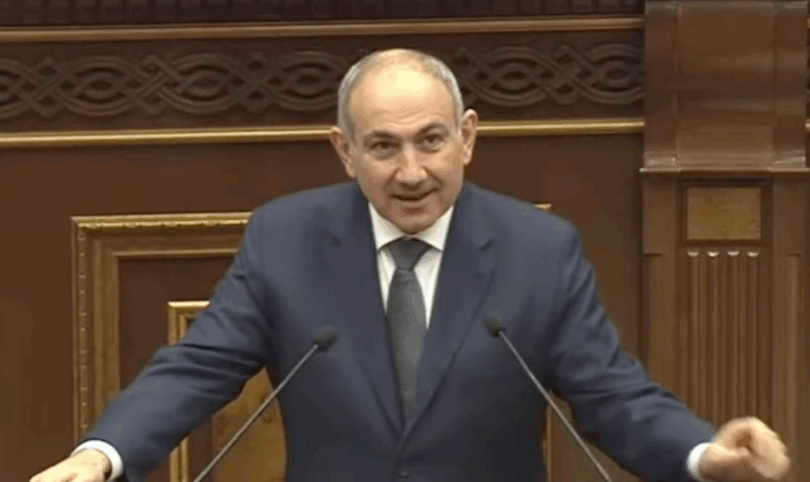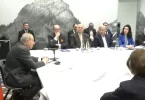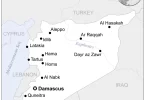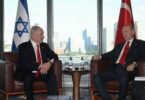For those concerned and not yet anesthetized or rendered insensitive to the Armenian Prime Minister Pashinyan’s public medley of misinformed bravado, his statement on April 14 is an Armenian national embarrassment. The statement can be heard at time mark 26:16 in Armenian. Pashinyan was asked by an MP why Armenia’s tax base is limited, which might be increased if the state would build methods of employment, factories, etc. In a Stalin-like monologue, Pashinyan, in so many words, said, “We can’t even build a kindergarten, let alone factories. We lack such ability.” One could write pages on what is wrong with such a statement, but what is essential is that Pashinyan continues to react to the state of fear created by both Turkey and Azerbaijan in the aftermath of Azerbaijan’s conquest of Nagorno-Karabakh and the forced exodus of its 120,000 Armenians. Currently, this historical Armenian land is being scraped clean of its prior Armenian presence.
Pashinyan thinks that responding to such a question in Parliament will leave the impression to Armenia’s adversarial actors that Armenia is so non-threatening that it cannot build a kindergarten. In sharp contrast, however, it encourages further hegemonic pressure on Armenia. Rather than engage in efforts to restore Armenian sovereignty, the current Armenian government is dominated by many who have never experienced schoolyard dynamics. One need not wonder why Baku consistently demands concessions from Pashinyan’s government. Azerbaijani President Aliev is the schoolyard bully, and Armenia appears to have been encouraged to give the bully all its lunch money, then punched in the face.
Pashinyan and his ‘Velvet Revolutionaries’ revel in the attention they receive at international conferences—such as the recent Antalya Diplomacy Forum 2025—and in the approving smiles from the anti-Russian EU. Being invited to a party is not a ticket to the inner circle. One should note that Armenia was present at the 1919 Paris Peace Conference, but that would not be considered ‘real‘ history. Ironically, Armenians were not directly involved in its culmination at Versailles. The 1920 Sevres Treaty was superseded in 1923 with the success of Turkish negotiator Ismet Inonu at the Lausanne Conference; the Armenian delegation was looking in through the window. One should also note that the EU is currently under extreme political and, especially, economic pressure; it may not last much longer as constituent states are forced to reconsider their sovereignty. So-called diplomatic assurances, perhaps encouraging the engineered defeat and ethnic cleansing of Nagorno-Karabakh, when not reinforced by credible military options, are ultimately hollow—little more than ink on paper without the weight of enforcement to give them meaning. What may have ostensively been true before and during the 2018 light-color Velvet Revolution has changed drastically today. Armenia allowed itself to be taken for a ride then, and today, Pashinyan has to grovel in Parliament to the geopolitical pressures he created in part and amplified with the lack of national goals and strategies to achieve them.
Part of any grand national strategy is to understand the limitations of a state’s capabilities and recognize and optimize the use of all its resources. The former allows for creating structures that minimize existing limitations, and the latter to engage and nurture human and material resources towards an end goal. An end goal could be maximizing Armenian national sovereignty while having the ability to inflict pain on existential or potential enemies in all forms, including diplomatic and special operations. This is not a wild dream—it is what all serious nation-states engage in. Rather than view itself as a Luxemburg or generate the fable that Armenia can magically transform itself into a Singapore of some sort, or with some MPs waiting to sign personal deals with Turkey and Azerbaijan, for the past thirty-plus years, Armenian leaders traded sovereignty for its definition of survival.
It is sad to hear the leader of any state claim in public that, given all the resources available, it is not even able to build a kindergarten. Pashinyan’s statement was not rhetorical; the video shows as much. The propensity for making such statements is already being used against Armenians by Azerbaijan in the post-2020 Karabakh war/2023 ethnic cleansing ‘peace process,’ with the bully demanding ever more from what appears to be an emasculated Armenian state. The least Pashinyan and supporters can do is realize their statements’ impact, considering the peace promised by conceding Nagorno-Karabakh is as elusive as ever.
Yerevan, Armenia
David Davidian is a Lecturer at the American University of Armenia. He has spent over a decade in technical intelligence analysis at major high-technology firms. He resides in Yerevan, Armenia. A compendium of his articles can be seen on shadowdiplomat.com





